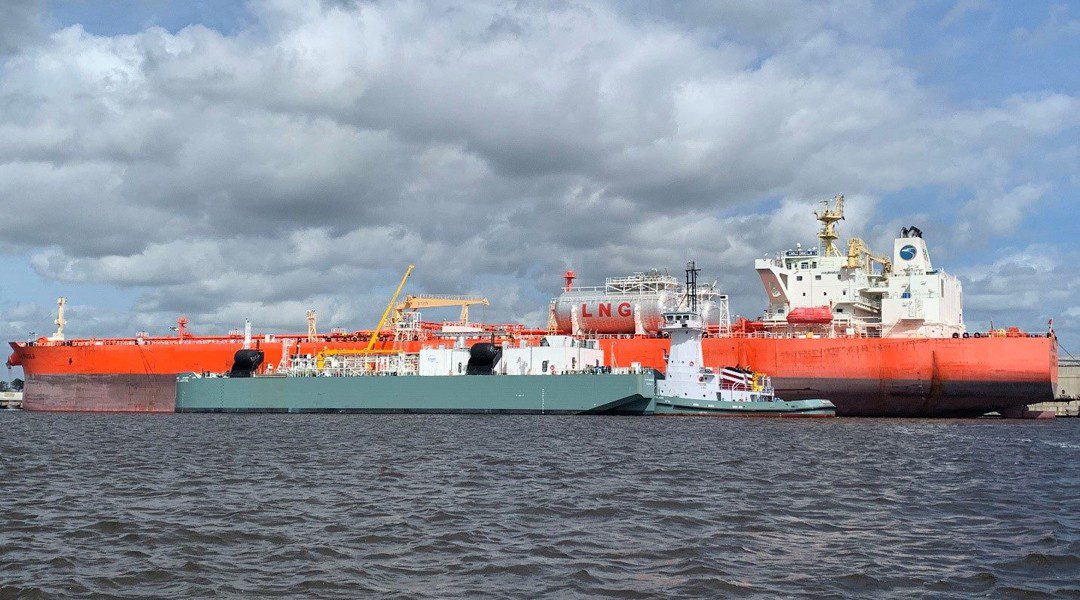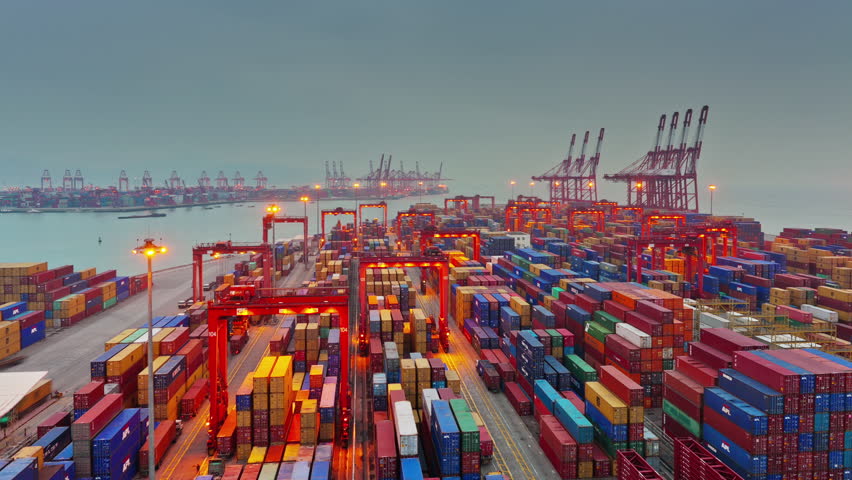On the afternoon of July 24th, COSCO SHIPPING Specialized Carriers’ vessel “Hanwukou” successfully completed its loading operations at Xiaomo Port in Shenzhen and departed smoothly. This marked the first “handshake” between the company’s newly built LNG-powered car carrier and Xiaomo Port, with 1,015 BYD new energy vehicles setting sail from BYD’s Shenshan base. Just 4 kilometers and a 5-minute drive from the factory to the port, the entire process from “offline to departure” was completed within 48 hours, as the vehicles embarked on their journey to Europe.
As a deep-water port in eastern Guangdong, Xiaomo Port is only 4 kilometers away from BYD’s Shenshan base. This geographical advantage allows newly produced BYD vehicles to be driven directly into the port for consolidation without long-distance transportation, taking no more than 5 minutes—eliminating intermediate storage and short-haul transshipment. This logistics chain, which simplifies the process from the very start, significantly improves efficiency compared to traditional logistics models.
For automakers, “going global” extends beyond “leaving the port”—participating in international market competition requires a stable and efficient global logistics network. Anchored by the goal of “ensuring all manufactured vehicles can be shipped and all shipments are optimized,” COSCO SHIPPING Specialized Carriers has already established a car shipping liner network covering six core regions: the Persian Gulf, Southeast Africa, Europe, West South America, the Mediterranean, and Australia-New Zealand. The destination of the “Hanwukou” vessel—Zeebrugge Port in Belgium—is a key node in the European route. Behind this, Ocean Auto Carrier, a subsidiary of COSCO SHIPPING Specialized Carriers, currently operates 23 car carriers, 80% of which are LNG dual-fuel vessels, balancing environmental sustainability and efficiency to provide solid shipping capacity support for liner services.
The “Hanwukou” is one of three 8,600-car-capacity LNG dual-fuel car carriers ordered by COSCO SHIPPING Specialized Carriers from Waigaoqiao Shipbuilding, named and delivered in April this year. The vessel has an overall length of 199.9 meters, a beam of 38 meters, a depth of 14.8 meters, a design draft of 9.2 meters, and a design speed of 19 knots, classified by DNV and the China Classification Society (CCS). Equipped with 14 vehicle decks and 8,600 standard car spaces, it can accommodate new energy vehicles, commercial vehicles, as well as special models like engineering vehicles and buses, making it well-suited to the diverse export needs of automakers in South China.
Notably, the second phase of Xiaomo Port’s construction began in January 2025 and is expected to be operational by 2028, with an annual capacity of 1 million vehicles. By then, it will form an efficient synergy with COSCO SHIPPING Specialized Carriers’ fleet, paving a solid pathway for South China automakers like BYD to accelerate their global expansion. The maiden voyage of the “Hanwukou” reflects Ocean Auto Carrier’s commitment to “customer-centric” service—proximity to client factories, selection of efficient ports, matching of specialized shipping capacity, and a global network layout. This is not just the launch of a single vessel but a “high-efficiency logistics model” for Chinese automotive brands going global.
For the “Hanwukou’s” maiden voyage to Xiaomo Port, Ocean Auto Carrier actively responded to customer needs, communicating in advance and meticulously planning to ensure smooth loading operations. Xiaomo Port’s inherent advantages further bolstered this “customer-first” service. Leveraging its convenient location, Ocean Auto Carrier provides customers with a “worry-free logistics chain” while streamlining the process from the outset, significantly enhancing efficiency over traditional logistics models—this is the embodiment of creating direct value for customers.




